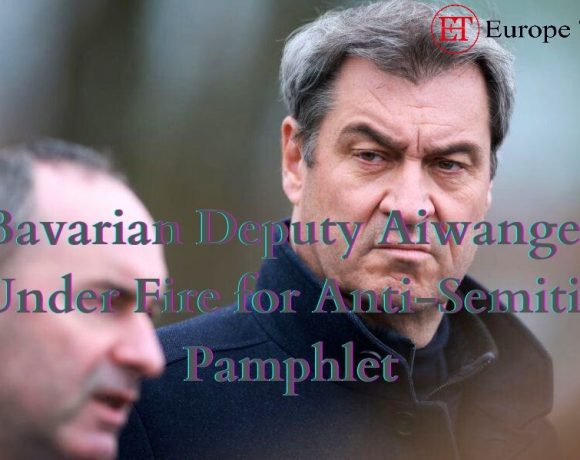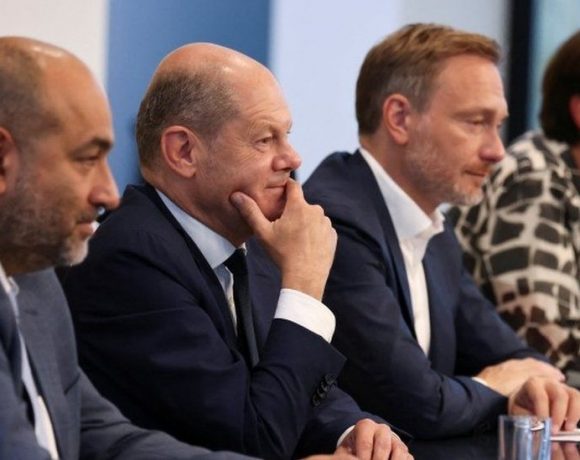
Bavarian Deputy Premier Hubert Aiwanger is facing scrutiny over his involvement with an anti-Semitic pamphlet from his school days. Aiwanger, a populist conservative leader, denies writing the pamphlet that mocked the Holocaust, but he has acknowledged possessing it 35 years ago. Bavarian Premier Markus Söder has asked Aiwanger to respond to 25 questions regarding the controversy. This issue comes ahead of crucial elections in Bavaria on October 8.
Söder emphasized the importance of transparency and condemned anti-Semitism, asserting that it has no place in the Bavarian government. The state parliament has requested an urgent statement on the matter. German Chancellor Olaf Scholz also called for clarification, underscoring the need to address anti-Semitism vigilantly.
The pamphlet in question contained references to a fictional competition for “the biggest traitor to the Fatherland,” with a disturbing prize of a “free flight through the chimney in Auschwitz,” referencing the Auschwitz extermination camp where countless Jews were murdered during the Holocaust. Aiwanger later admitted to having copies of the pamphlet in his schoolbag during his teenage years, but he couldn’t recall whether he distributed the material himself. He denounced the content as “disgusting and inhumane.”
The situation has generated debates over whether actions from a person’s youth should impact their political career decades later. However, the pamphlet’s offensive content has been widely condemned. In Germany, making light of concentration camps is unacceptable and can have legal consequences due to Holocaust denial being a criminal offense.
Aiwanger’s response to the situation has been criticized for lacking transparency and genuine remorse. Despite his history of fiery and populist rhetoric, he has remained reticent on this matter. Pressure is mounting on Aiwanger, especially from Söder, who aims to maintain the coalition with Aiwanger’s party but is frustrated by the timing of the controversy ahead of crucial elections.
The Free Voters party, led by Aiwanger, is expected to secure 11-14% of the vote, but if support wanes, it could spell trouble for Söder’s conservative Christian Social Union. This situation is particularly significant given upcoming elections in other German states and nationally, as the far-right Alternative for Germany (AfD) has been gaining traction.
The handling of the story by the newspaper Süddeutsche Zeitung has also come under scrutiny, with criticism directed at its headline suggesting Aiwanger wrote the pamphlet, even though his denial was placed behind a paywall for subscribers to access.
Picture Courtesy: Google/images are subject to copyright

